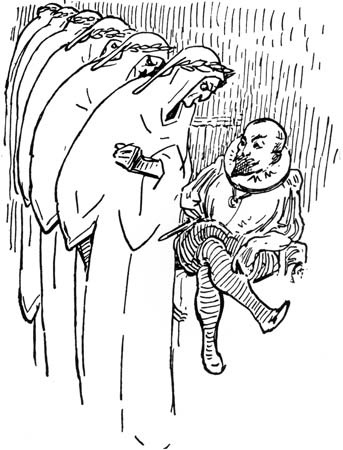clerihew
poetic form
a light verse quatrain in lines usually of varying length, rhyming aabb, and usually dealing with a person named in the initial rhyme.
This type of comic biographical verse form was invented by Edmund Clerihew Bentley (Bentley, E C), who introduced it in Biography for Beginners (1905) and continued it in More Biography (1929) and Baseless Biography (1939). The humour of the form lies in its purposefully flat-footed inadequacy: in addition to clumsy rhythm and rhyme, the verse's treatment of the subject is either off the mark or totally beside the point, as though it were the work of a reluctant schoolchild. Clerihews are written as four-line verses of two rhyming couplets, the first line almost invariably ending with the name of the subject:
After dinner, Erasmus
Told Colet not to be “blas'mous”
Which Colet, with some heat
Requested him to repeat.
The number of accents in the line is irregular, and one line is usually extended to tease the ear. Another requisite of the successful clerihew is an awkward rhyme, as in Bentley's "Aeschylus" :
“Steady the Greeks!” shouted Aeschylus.
“We won't let such dogs as these kill us!”
Nothing, he thought, could be bizarrer than
The Persians winning at Marathon.
 Another example is Bentley's "Cervantes" :The people of Spain think Cervantes
Another example is Bentley's "Cervantes" :The people of Spain think CervantesEqual to half-a-dozen Dantes:
An opinion resented most bitterly
By the people of Italy.
Some of the best clerihews were written by Sir Francis Meynell (Meynell, Sir Francis), W.H. Auden (Auden, W H), and Clifton Fadiman (Fadiman, Clifton).
- San Gabriel
- San Gabriel Mountains
- Sangallo Family
- Sangamon Interglacial Stage
- Sangamon River
- Sangareddi
- sang de boeuf
- Sanger, Frederick
- Sanger, George
- Sanger, John
- Sanger, Margaret
- San Germán
- Sanggan River
- sangha
- Sangha River
- Sangihe Islands
- San Gimignano
- San Giorgio Maggiore
- San Giovanni Rotondo
- San Giuliano Terme
- Sangli
- Sangoan industry
- Sangre de Cristo Mountains
- Sangrur
- Sangster, Margaret Elizabeth Munson